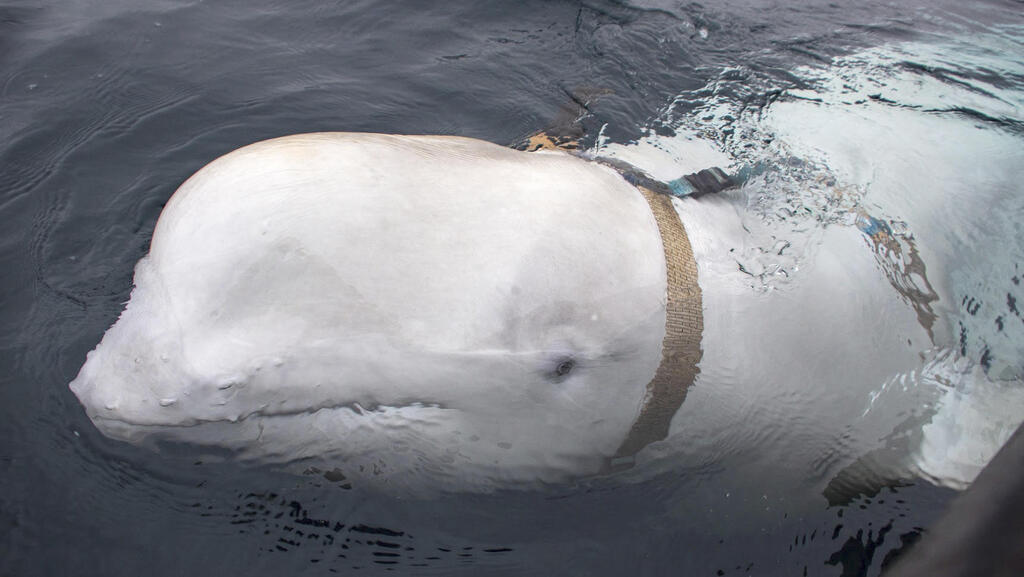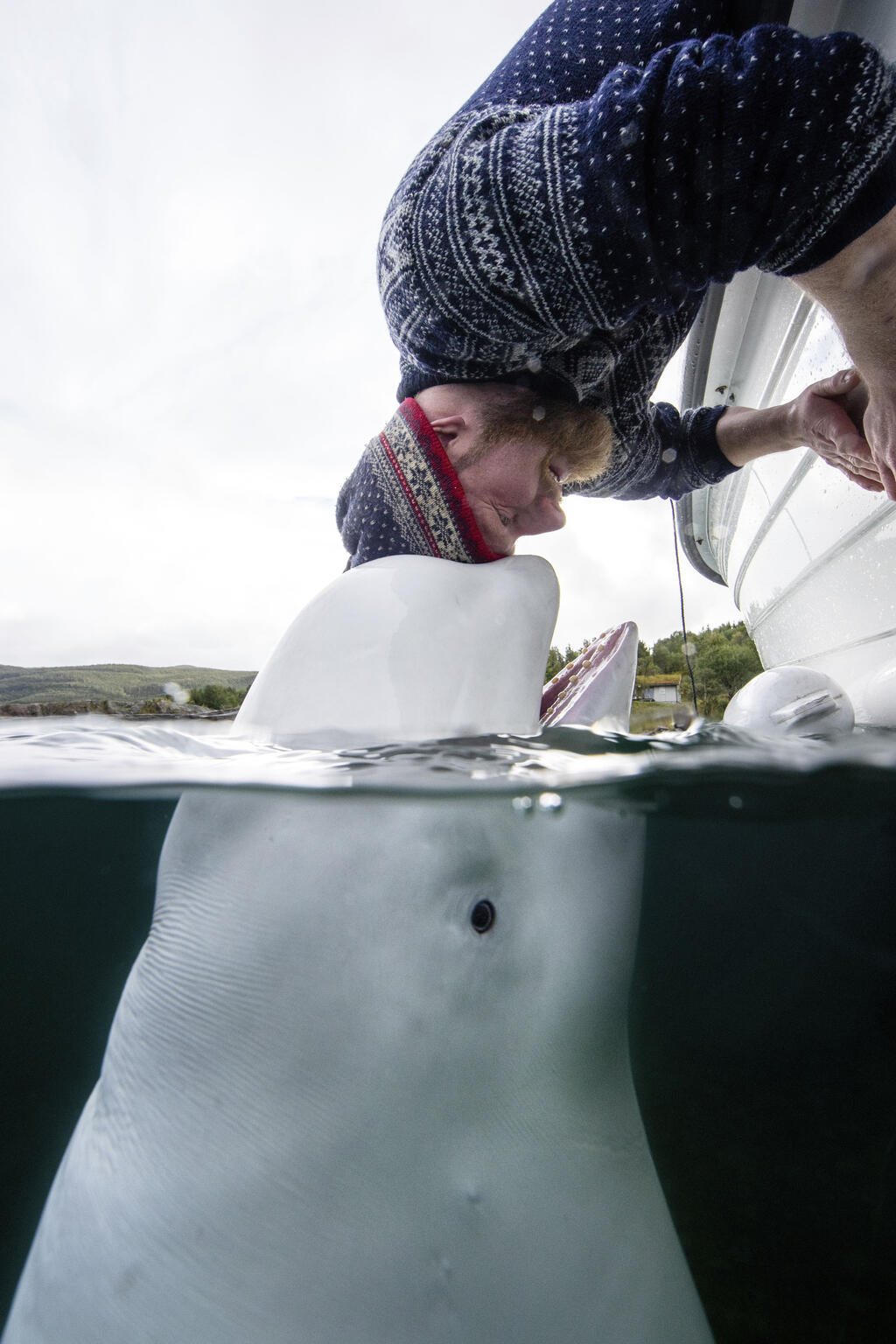Animal rights groups said Wednesday that gunfire killed a beluga whale that rose to fame in Norway after its unusual harness sparked suspicions the creature had been trained by Russia as a spy. The organisations NOAH and One Whale said they had filed a complaint with Norwegian police asking them to open a criminal investigation.
Nicknamed "Hvaldimir" in a pun on the Norwegian word for whale (hval) and its purported ties to Moscow, the white beluga first appeared off the coast in Norway's far-northern Finnmark region in 2019. A celebrity in Norway, he was found dead Saturday in a bay on the country's southwestern coast.
3 View gallery


The whale in Norway in 2019
(Photo: AFP PHOTO / Norwegian Directorate of Fisheries / JORGEN REE WIIG)
His body was transported to a local branch of the Norwegian Veterinary Institute on Monday for an autopsy. The report is expected "within three weeks", a spokeswoman for the institute said.
"He had multiple bullet wounds around his body," Regina Crosby Haug, the head of One Whale, which was founded to track the beluga, said after viewing Hvaldimir's body on Monday. Photographs published Wednesday by the two organizations showed what appeared to be bullets lodged in holes in the animal's blood-streaked body.
"The injuries on the whale are alarming and of a nature that cannot rule out a criminal act -- it is shocking," NOAH director Siri Martinsen said in a statement. "Given the suspicion of a criminal act, it is crucial that the police are involved quickly," she said.
Police confirmed they had received a complaint and said they would look into the matter "to determine whether there are reasonable motives to launch an investigation". The Veterinary Institute said that "if something suspicious were to come up" under the autopsy, "police would be informed".
When Hvaldimir was found in 2019, Norwegian marine biologists removed a man-made harness with a mount suited for an action camera and the words "Equipment St. Petersburg" printed in English on the plastic clasps.
Norwegian officials said Hvaldimir might have escaped an enclosure and been trained by the Russian navy, as he appeared to be accustomed to humans. Moscow has never issued any official reaction to speculation that he could be a "Russian spy".
A third organization that had also tracked the whale's movements, Marine Mind, said it found Hvaldimir's dead body floating in the water on Saturday at around 2:30 pm (1230 GMT). "There was nothing to immediately reveal the cause of death," director Sebastian Strand said. "We saw markings but it's too early to say what the cause of death was."
He said that some of the markings were probably caused by marine birds, but that there was no explanation for the others at this stage. One Whale and Marine Mind had been at odds over how to best protect Hvaldimir.
3 View gallery


Hvaldimir, the White Whale
(Photo: Aleksander Nordahl, Norway, Shortlist, Professional, Wildlife & Nature, 2021 Sony World Photography Awards)
Citing the risk of a collision with ships, One Whale had called for him to be transferred to the Barents Sea off northern Norway, a more natural habitat for belugas. But Marine Mind had opposed the idea, arguing that a transport could pose a danger to his life.
With an estimated age of 15 to 20, Hvaldimir was relatively young for a beluga whale, which typically live 30 to 35 years, according to the WWF. In 2019, the hypothesis of a "spy whale" was fuelled by the strategic location of the Barents Sea, a hotbed of East-West rivalry during the Cold War.
Moscow's most powerful navy fleet is based in the Barents Sea, and Russia and the West continue to track the movements of each other's submarines in the region. The region is also the gateway to the Northeast Passage, which shortens shipping routes considerably between the Atlantic and Pacific Oceans.


